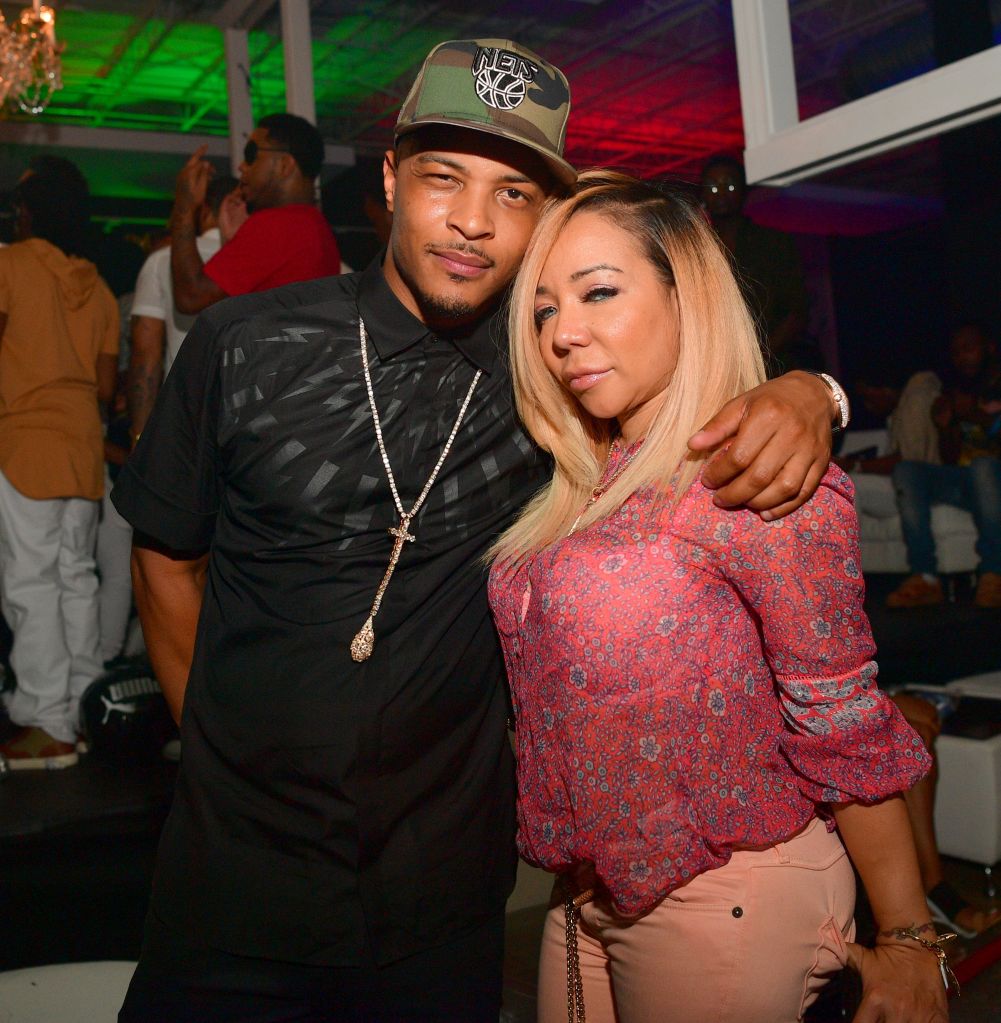
Source: Prince Williams / Getty
T.I. deserves a round of applause for the one decent act he’s accomplished in recent history: Officially ending his relationship his wife, Tiny.
And while increased viewership of the final season of their reality show, The Family Hustle, gave the omni-hustler the boon he needed to flip other deals, it also delivered some much needed closure for Tiny. Well, except that T.I. told her that he loved her, appreciates her and still considers her one of his best friends.
Obviously, the decision to remain friends with an ex is a personal choice that is compounded by the ongoing attachments that remain after a relationship ends. For example, former partners who share assets such as businesses, investments or real estate will have some interaction—at least until the dissolution of the entanglements. And divorced spouses who share children are forced to work together in some capacity… in perpetuity. In both scenarios the impetus to work through one’s emotional pain and get to some level of closure is self-preservation. After all, the longer you remain bitter and stuck in your wants versus your reality, the more you will suffer. Still, there is a difference between accepting the end of a relationship and moving on, and committing to an intimate friendship with an ex who’s mistreated you— the latter being most beneficial to the other party.
When was the last time you’ve heard of a man maintaining a friendship with the homie who repeatedly sneaks around and knocks down his girl? Right. So, if your spouse—the person who vowed to be your partner, lover and bff—abandons the commitment you’ve made to each other by repeatedly exhibiting behavior that is disrespectful, manipulative and is emotionally and physically unfaithful, s/he is not a friend. In fact, that individual has become your enemy. How else do you describe someone who willfully disrespects you without any consideration for your well-being?
And lets be clear, women aren’t the only ones who fall victim to narcissistic, emotionally abusive behaviors in relationships. There are tons of “bad bitches,” who embody the moniker in more ways than one. These chicks are as emotionally barbaric as the stereotypical “cheating man,” ravaging the confidence and ability to trust of every man unlucky enough to love them.
So, if your spouse—the person who vowed to be your partner, lover and bff—abandons the commitment you’ve made to each other by repeatedly exhibiting behavior that is disrespectful, manipulative and is emotionally and physically unfaithful, s/he is not a friend. In fact, that individual has become your enemy.
If you’ve been in an emotionally abusive relationship (regardless of your gender), working on your self-esteem is a must. Leaving, or accepting that the other party has left, is only the first step in truly getting over the hurt and, most importantly, getting to a place where you won’t subject yourself to abuse again. When you’re ready, short-term therapy provides a great space to really work on some of those issues.
Consider these notions while you’re waiting on that much-needed appointment.
1.You’re not friends. All couples aren’t best friends, but if being pals is truly at the core of your relationship, your partner wouldn’t have dogged you out. If you’re wrapping up a “situation” (whether it’s a marriage or agreed monogamous relationship) where your former bae dogged you out (Read: repeatedly cheated on you, took your money or emotionally/physically abused you) that person is NOT your friend. At the core, friends are good to each other—even in sexual relationships. Ya’ll haven’t passed that test. If that person truly loved you the bad behavior wouldn’t be on repeat.
2. You are being used. Accept that the person you love is happy taking more from the relationship than s/he is giving. (Note: Your real friends have likely told you this but you’ve happily donned blinders because you’ve held on to the fantasy that the give and take of the relationship would balance out.) It won’t. In this case, giving more will always net less because what you want in return—love, fidelity, commitment—is not the currency your ex is trading in.
3. You aren’t a victim. We live in a society where men are encouraged to swallow their feelings and women are celebrated for pushing through it. Nah. You should be sad. It’s okay to be devastated that the relationship you wanted didn’t work out. It’s understandable that you will have periods when you just don’t want to wake up and move on. But you have to. What’s unacceptable is to think of yourself as a victim, which means you do not take responsibility for dismissing the signs that your mate was a terrible person, or accountability for the times you knowingly allowed treatment that is unacceptable. No, you are not a victim— you made a bad choice (or a lot of them). And now that you’ve decided to do better, you will be better.
















